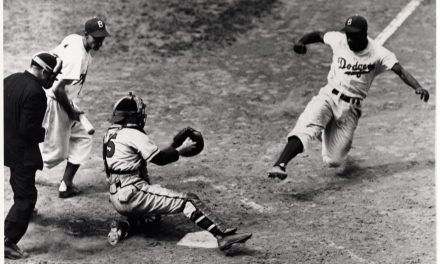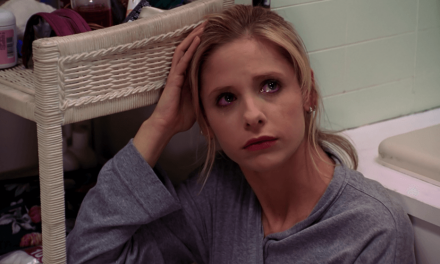organized in partnership with FilmForum 2023 – XXX International Film and Media Studies Conference
The 29th edition of Visible Evidence (web: https://visibleevidence.org/ ), the annual international conference on documentary film and media, is organized in partnership with FilmForum 2023, the 30th edition of Udine’s International Film and Media Studies Conference and the 20th of the MAGIS International Film and Media Studies Spring School, and will be hosted at the University of Udine, Italy, September 6-9, 2023.
Visible Evidence XXIX will address the history, theory, practice and pedagogy of documentary and non-fiction cinema, television, video, audio recording, digital media, photography, VR, games and performance in a wide range of panels, seminars, workshops, plenary sessions, and screenings. Proposed panels, presentations, seminars, workshops, and screenings may address any aspect of documentary screen cultures, histories, theories, and practices.
Yet, we especially encourage proposals that think about the documentary in ecological terms. In other words, we particularly welcome proposals that look at documentaries as dynamic systems that result from an assemblage of multiply-connected and interdependent agents. As Helen De Michiel and Patricia Zimmerman (2013) have noted, the twenty-first-century documentary characterizes itself as a “fluid, collaborative, shape-shifting, responsive environment for encounters”. Consequently, in order to fully understand some of its manifestations, such as for instance the online ones, it has become key to look at documentaries as ecosystems situated in complex media environments (e.g., see Nash, Hight & Summerhayes 2014). In fact, on closer inspection, the documentary in its many forms has always been a living environment responsive to technological, social, and political shifts, eager to embrace ever-new ways of capturing the real. But, how have documentary ecologies changed over time? Which agents and in what terms have contributed to this continuous reshaping of the documentary and the establishment of its various faces? How do the various agents of documentary ecosystems interact with and shape each other? Does the cohabitation of the “old” and the new complicate this interplay? Indeed, even if new technologies, infrastructures, platforms, and modes of representation have kept and continue to arise, older ones often do not disappear. They simply mutate, hybridize and evolve, a fact that renders the documentary landscape increasingly composite and thus makes looking at bigger pictures, as considering the documentary in ecological terms implicates, become all the more important.
These are only some of the questions that the conference wishes to explore in the hope to identify what more can thinking ecologically help us uncover about past and present documentary discourses and practices as well as which new research pathways the adoption of this perspective can open.
Possible topics may include, but are not limited to:
– From old to social media: documentary and evolving technologies
– Documentary and emerging platforms
– Collaborative documentary (e.g., co-creation, co-design, crowd-sourcing)
– Interactive, immersive, and participatory documentaries (i-docs, VR documentaries, docugames, etc.)
– Documentary and animation
– Hybridity and documentaries (mockumentary, docudrama, docufiction)
– Convergence, transmediality, and the documentary
– Crossing national borders: transnational documentaries (e.g., co-production practices, multi-location documentaries, etc.)
– Documentary’s environments, documenting our environment
– Documentary soundscapes
– Archives, histories, museums, and the documentary
– The infrastructures of documentary
– The materiality of documentary and its ecological impact
– Activism and documentary
– The ethical challenges of documenting the real
– Race, gender, sexuality, and the documentary
– Documentary audiences
Conference structure
The conference will be articulated in panel, workshop, seminar, and screening sessions, each of which will be allotted one hour and forty-five minutes. Workshops are envisioned as an open and unstructured exchange of ideas and techniques between all workshop participants. Seminars are instead conceived as longer conversations around a specific topic. For this reason, each seminar topic will be developed over two slots to be scheduled on two consecutive days of the conference during a time frame that will be devoted just to seminars. Presenters in each slot will be required to attend also the other slot devoted to that seminar topic. Finally, the conference will also offer screening sessions devoted entirely to a single film or a series of short films by attending filmmakers, during which the latter will also have the chance to discuss their work with the delegates in attendance.
Submission Guidelines
Panels will consist of 3 or 4 papers of no more than 20 minutes each. Panel chairs will ensure that at least twenty minutes are available for questions and discussion following paper presentations.
- Panel proposals require a title and a 300-word (max) description of the panel itself; 5 keywords that identify the panel’s focus; a title and a 200-word (max) description of each individual paper; 5 bibliographic entries for each paper; and 150-word (max) biographies of each participant. The chair of the panel should collect all of the material and submit the panel proposal here.
Individual paper proposals may be submitted to the open call. Each individual presentation will be allotted 20 minutes. Accepted presentations will be programmed into panels with other individual presentation submissions.
- Individual paper proposals require a title, a 300-word (max) description of the paper itself; 5 keywords that identify the paper’s focus; 5 bibliographic entries for the paper; and a 150-word biography of the participant. Submit an individual paper proposal here.
Workshops will consist of between five and six opening statements, in which workshop leaders can present up to thirty minutes collectively of prepared or informal material (5 minutes for each statement). The remaining time will be devoted to discussion.
- Workshop proposals require a 300-word (max) description of the workshop itself; 5 keywords that identify the workshop’s focus; 50-word (max) descriptions of each individual statement; and 150-word (max) biographies of each participant. The chair of the workshop should collect all of the material and submit the workshop proposal here.
Seminars will consist of between 10 and 12 10-minute presentations, aimed at igniting productive conversations about a specific documentary-related topic, which will be divided over two slots to be scheduled on two consecutive days of the conference. Seminar participants will be required to attend both slots. A maximum of 8 seminar topics will be offered during the conference. Those who wish to lead a seminar should submit a proposal that outlines the rationale for the topic chosen, the leader’s qualifications, and the pre-conference work required.
The seminar leaders whose proposals will be accepted will then be responsible for circulating a CFP through the Visible Evidence listserv soliciting submissions by the membership for participation in the seminar, reading all submissions and selecting seminar participants, assigning any pre-conference work, moderating the discussion, and any in-seminar work.
Seminars will be open to auditors, who should be considered a core part of it and will be asked to read or view all materials assigned by the seminar leader and/or the seminar participants.
- Seminar topic proposals require a 450-word (max) outline of the proposed seminar topic, the rationale for it, and the pre-conference work that will be required of participants; 5 keywords that identify the seminar’s focus; and a 150-word (max) biography of the proposed seminar leader, highlighting their qualifications for conducting a seminar on that specific topic. Submit the proposal for a seminar’s topic here.
Participants may present in a workshop or seminar or on a panel, but not in more than one. But, participants can present in a panel, seminar, or workshop and serve as a chair.
VE XXIX also welcomes screening proposals for filmmakers to screen their work in a session devoted entirely to a single film or a series of short films by attending filmmakers.
- Screening proposals require a 300-word (max) description of the work; a link to the screener of the film with total running time; and a 150-word biography of the filmmaker. Submit screening proposals here.
Mode of participation
Mainly in person. Only up to 20% of the conference presentation slots will be allocated to online presentations for those who cannot make it to Udine in person. For this reason, panel proposals shouldn’t have more than 1 presenter participating remotely and workshop proposals more than 2. You will be asked to specify upon submission the mode of participation of your choice. After the acceptance of the proposal, it will not be possible to switch from one mode to the other.
Submission deadlines
- Seminars: December 12, 2022
- All other proposals: January 16, 2023
Seminar leaders will be notified of acceptance/non-acceptance by January 9, 2023.
All other applicants will be notified of acceptance/non-acceptance by February 28, 2023.
For all conference-related inquiries, please email visiblevidence2023@gmail.com




